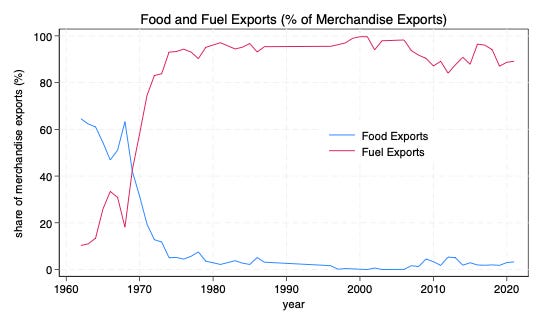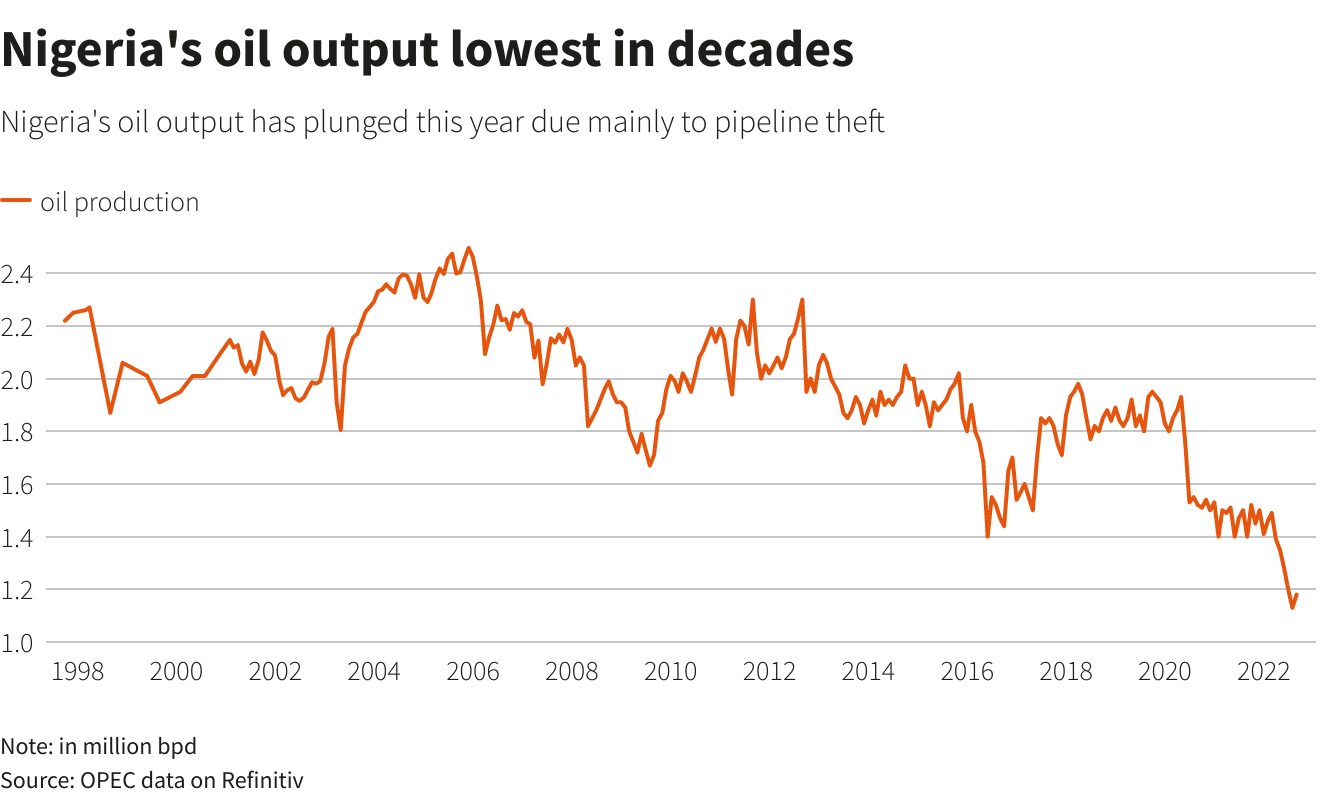39 Nigeria
Opalo
Nigeria comprises 67% of ECOWAS GDP. And despite the still low levels of economic integration and trade within ECOWAS, it’s fair to say that as Nigeria goes so does the regional economy. Which is why I’m very excited about the potential for Nigeria to witness reforms in the most distortionary sector of its economy: petroleum. President Bola Tinubu already removed fiscally wasteful fuel subsidies. But there’s more to be done to reform Nigeria’s petroleum sector (and the wider energy sector).

It is hard to overstate how much petroleum has distorted Nigeria’s political economy (see graph above). It killed the incentive to invest in other tradable sectors, especially in agriculture (and contributed to Nigeria becoming a net importer of food). It killed the incentive to build an effective fiscal state at the federal, state, and local government area levels. Its “enclave economy” feature killed the incentive to invest in a working domestic investment environment (including in the oil sector) characterized by strong property rights protections and a productive labor force. Consequently, Nigerian elites are more likely to steal public resources and hide their loot abroad than to leverage their influence over state policies to grow domestic commercial empires that create jobs for Nigerians. Finally, easy oil money has impeded all manner of much-needed economic and political reforms.
One hopes that all that will change with the completion of Aliko Dangote’s 650,000 barrels-per-day refinery. Once fully operational the refinery should absorb about half of Nigeria’s oil production, and meet its domestic demand with some capacity to spare for regional exports. This will obviate the need to export crude and import refined petroleum products.

If everything goes to plan — and there are still tripwires all over the place (the oil sector has too many vested interests) — the refinery will be a game changer. It will solve part of Nigeria’s foreign exchange problem; reduce the many distortions in the petroleum sector (from poor accounting for what is actually produced to corruption in the importation and distribution of fuel products); create strong incentives for investments in Nigerian oil production capacity (which has been deliberately allowed to atrophy, despite recent favorable oil prices); and spawn related industries — from plastics, to logistics, to gas, to bitumen, et cetera.
Overall, Nigeria might be about to finally de-enclave and domesticate its petroleum sector.
Reducing the petroleum sector’s distortionary effects is a necessary first step towards creating the right incentives for Nigerian elites to build enabling conditions for private investment, mass job creation, and much-needed governance structures that can convert economic growth into development and improvements in human welfare. And it goes without saying that an economically dynamic Nigeria will be a boon for ECOWAS. I remain bullish on Nigeria.
Opalo (2023) An important but underrated shift in Nigeria’s political economy